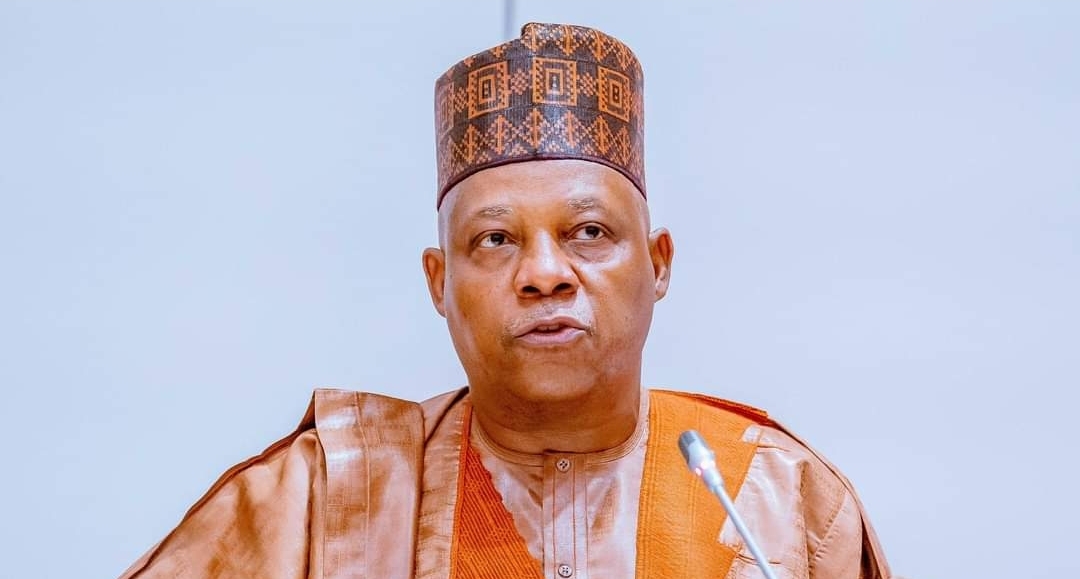
As parts of efforts to tap from the carbon market, which has an estimated value of $2.5 billion, the Vice President Kashim Shettima, yesterday inaugurated the Intergovernmental Committee on Carbon Market Activation Plan.
The committee is expected to help create a blueprint to drive an efficient sustainable carbon market ecosystem in the country.
Inaugurating the committee on Thursday at the Presidential Villa, Abuja, Shettima said it was in fulfillment of the promise made by President Bola Tinubu to reduce Nigeria’s carbon footprint as well as plans by the federal government, in collaboration and support of the Africa Carbon Market Initiative (ACMI).
The inauguration of the committee, chaired by the Executive Chairman of the Federal Inland Revenue Service (FIRS), Mr Zacch Adedeji, followed the creation of the Intergovernmental Committee on Carbon Markets by the President at the COP28 in December 2023.
Shettima said the move is a justification of the Tinubu administration’s focus on natural gas as a transition fuel.
The Vice President noted that the Intergovernmental Committee on carbon market stands as a testament to the federal government’s dedication to developing a national carbon market strategy.
Shettima further stated that the initiative would attract crucial investments, catalyst emission reduction and foster sustainable development.
He stated: “However, the intervention we seek can’t be achieved unless the best minds of this nation come together to oversee our transition, and I have no doubt that we are on the right track, especially with the calibre of the technocrats that are in this room.
“We gather here today as part of the broader initiative to position Nigeria and, by extension, Africa in green growth manufacturing and Industrialisation. This underscores our commitment to sustainable development and environmental stewardship.
“This justifies our focus on natural gas as a transition fuel alone site investment in renewable energy sources. Our mission is to meet the needs of the present while safeguarding the future.
“The sincerity of our commitment to coordinating carbon-related market plans and initiatives has never been in doubt. The Intergovernmental Committee on carbon market stands as a testament to our dedication to developing a national carbon market strategy.”
The Vice President noted that the implementation of the carbon market mechanism represents a radical shift, stressing that each and every member of the committee must consider the initiative as a call for collaboration, innovation and collective action.
“Today, as we embark on the mission to translate innovative ideas from conference papers into tangible actions, we must recognise that our collaboration with the African carbon market initiative not only exemplifies our commitment to environmental stewardship but promises to reposition Nigeria as an investment-friendly destination for a high integrity carbon market.
“What we are making here is history that will expand our participation in the voluntary and compulsory carbon market. We are all aware that the carbon market offers a remarkable opportunity to unlock billions for the climate finances of Nigeria and Africa at large,” the VP added.
Earlier, in his remark, the co-chairman of the committee, Mr Zacch Adedeji, said the initiative holds immense promise for Nigeria’s sustainable future.
He commended the Vice President for his unwavering support and commitment to driving Nigeria’s carbon market agenda forward.
Adedeji assured that the committee would work hand-in-hand with the African carbon market initiative to harness Nigeria’s vast carbon potential which exceeds $2 billion.
Also, Director-General of the National Council on Climate Change (NCCC), Dr Salisu Dahiru, said the committee had swung into action since December 2023 when it was established by President Tinubu on the sidelines of COP28 in Dubai.
Dahiru explained that the issue of carbon market and trading is axiomatic to any country’s mitigation as well as adaptation efforts in terms of what it needs to do to contribute to global efforts for managing climate change.
